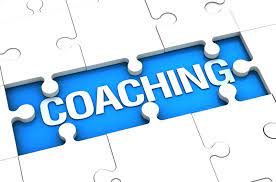In an ever-changing world, the ability to adapt and bounce back from challenges is more crucial than ever. Emotional resilience, the capacity to handle and recover from emotional challenges, is not just an innate trait but a skill that can be developed and strengthened. Life coaching has become a key player in this area, offering techniques and insights to build emotional resilience. In this 1200-word blog, we will explore how life coaching can aid in cultivating this essential skill.
Table of Contents
Understanding Emotional Resilience
Emotional resilience is the ability to navigate high-stress situations or crises without losing your balance. It involves coping with your emotions in a healthy way and rebounding from setbacks. Resilient individuals are able to handle life’s ups and downs with grace and come out stronger from these experiences. However, this resilience is not about ignoring or suppressing emotions, but rather understanding, managing, and learning from them.
The Role of Life Coaching in Developing Resilience
Life coaching provides a supportive and empowering environment to build emotional resilience. Coaches help clients understand their current level of resilience, identify areas for improvement, and develop strategies to enhance their emotional strength. The process is personalized, acknowledging that resilience-building techniques may vary from person to person.
Self-Awareness: The Foundation of Resilience
Self-awareness is the cornerstone of emotional resilience. Life coaching techniques often begin with helping clients gain a deeper understanding of their emotions, triggers, and responses. This awareness is crucial in recognizing when you are becoming emotionally overwhelmed and in taking steps to address it.
Managing Stress Effectively
Stress management is a critical aspect of building resilience. Life coaches teach various stress-reduction techniques such as mindfulness, meditation, deep breathing exercises, and progressive muscle relaxation. These practices help in calming the mind and body, reducing the impact of stress.
Cultivating a Positive Mindset
A positive mindset is a powerful tool in building resilience. Life coaches work with clients to shift their perspective from a focus on problems to a focus on solutions and learning opportunities. Techniques like positive affirmations, gratitude practices, and cognitive restructuring can help in fostering a more optimistic outlook.
Enhancing Emotional Regulation
Learning to regulate emotions is key to resilience. Life coaches help clients develop strategies to manage intense emotions like anger, sadness, or anxiety. This might involve emotional release, developing healthy coping mechanisms, or learning to reframe negative thoughts.
Building Strong Relationships
Strong, supportive relationships are a buffer against emotional difficulties. Coaches encourage clients to cultivate and maintain positive relationships. This involves improving communication skills, building empathy, and learning to seek and offer support effectively.
Setting Boundaries for Emotional Health
Setting healthy boundaries is vital for emotional resilience. Life coaches assist clients in learning how to say no, prioritize their well-being, and set limits in both personal and professional relationships. This helps in preventing burnout and emotional exhaustion.
Developing Problem-Solving Skills
Resilient individuals are effective problem-solvers. Life coaching focuses on enhancing these skills, teaching clients how to approach challenges methodically and creatively. This not only helps in solving the immediate problem but also builds confidence in handling future challenges.
Encouraging Self-Care and Well-being
Regular self-care is essential for emotional resilience. Life coaches emphasize the importance of activities that nurture physical, mental, and emotional health. This could include exercise, hobbies, relaxation techniques, or sufficient rest.
Learning from Failures and Setbacks
Life coaching helps individuals see failures and setbacks as learning opportunities. Coaches guide clients in analyzing what went wrong, what can be learned, and how to move forward. This approach reduces the fear of failure and encourages a growth mindset.
Regular Reflection and Progress Tracking
Reflecting on one’s emotional growth is a key part of the coaching process. Regular sessions provide an opportunity to assess progress, celebrate successes, and make adjustments to resilience-building strategies.
Long-term Strategies for Resilience
Building emotional resilience is a long-term process. Life coaches work with clients to establish routines and habits that support sustained emotional strength and well-being.
Conclusion
Building emotional resilience is crucial in navigating the complexities of modern life. Through life coaching, individuals can develop the necessary skills and strategies to manage their emotions effectively, cope with stress, and recover from setbacks. This journey not only enhances the ability to handle current challenges but also prepares individuals for future adversities. Ultimately, life coaching in the realm of emotional resilience leads to a more balanced, fulfilling, and resilient life.














